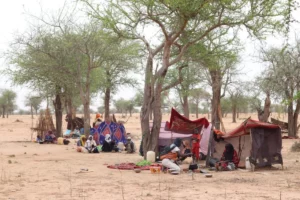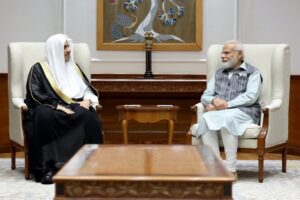Gambia, 27Rabi’ul Awwal 1437/7 January 2015 (MINA) – The government of Gambia ordered female government employees on Tuesday to wear headscarves at workplace in a sign that the West African country is embracing a Muslim identity, one month after President Yahya Jammeh declared it as an Islamic republic.
Starting this year, female workers are no longer allowed to expose their hair, said a memo circulated to all ministries and departments.
Female staff are urged to use head ties and neatly wrap their hair, the memo said. Around 95 percent of Gambia’s population of 1.8 million people are Muslims, and the country is now the second Islamic republic in Africa after Mauritania, Ahlul Bayt News Agency (ABNA) quoted by Mi’raj Islamic News Agency (MINA) as reporting.
Other Islamic countries include Iran, Afghanistan and Pakistan.
Also Read: UN Experts Warn Right Violations in Kashmir by Indian Authorities
President Jammeh said last month that the move was designed to distance Gambia from its past as a British colony, noting that citizens of other faiths would still be able to practice their beliefs.
Despite strong commercial ties with Britain and other European countries whose citizens are regular visitors to Gambia’s white-sand beaches, relations with the West have deteriorated in recent years.
Islam is the majority religion of the Gambia with around 95.3% of the population being Muslims. Other religious societies are made up of Catholics, Protestants and Tradional African religion, Islam in the Gambia is characterized by its coexistence with other religions.
The majority of its Muslims are Sunni belonging to Maliki school of Jurisprudence, influenced with Sufism. The Ahmadiya movement is also present.
Also Read: At Least Nine Children and One Woman Killed in Pakistani Airstrike on Afghanistan
However, some popular religious and tribal practices diverge from mainstream Islam, with a system of Marabot societies being very common.
Gambia became a Muslim state largely because of the efforts of nineteenth-century Muslim proselytizers and because of the state of peace brought about by British colonization. A republic governed by multiparty democratic rule, Gambia achieved its independence from Great Britain in 1965 .
The Muslim sense of tolerance in Gambia is largely the work of the present leadership, which has decided to build on the colonial legacy of religious pluralism.
In 2000 , 90 percent of Gambia’s 1.4 million people were Muslim, 9 percent were Christian, The constitution was repromulgated in 1997, a unicameral parliament serves in a democratic, multiparty system. (T/Imt/R03)
Also Read: Pakistan Condemns Israeli Settler Attacks in West Bank, Al-Aqsa Storming
Mi’raj Islamic News Agency (MINA)
Also Read: China Criticizes US-Drafted UN Gaza Resolution as Vague, Abstains from Vote

































 Mina Indonesia
Mina Indonesia Mina Arabic
Mina Arabic